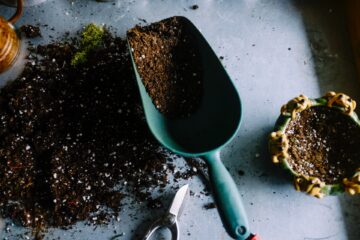Composting is an indispensable part of a sustainable lifestyle and a hot composter is even better. It makes waste management easier, it keeps your household’s carbon footprint low, and it improves soil in your garden. But what if there were a way to make composting even better? What if you could do something that would not only improve the quality of your soil—but also make it more efficient? That’s where hot composting comes in. Hot composting is essentially just making use of the heat generated by active microbes as they break down organic matter into humus-rich fertiliser for plants. The process takes place much faster than traditional methods because the heat speeds up microbial activity within any given pile or bin. Not only does this result in faster decomposition times but also a more efficient use of nitrogen (which helps plants grow).
What is a hot composter
A hot composter is a composting system that heats up the compost and uses a heat source to speed up the composting process. It’s an enclosed container with an insulated lid, which traps in heat from your chosen heat source (like firewood or propane). The temperature inside your hot composter can reach over 70C (160 degrees Fahrenheit)! Hot composting takes less time than traditional cold-weather composting because it speeds up decomposition by killing off pathogens in food scraps and speeding up microbial activity.
Hot composters are often used for turning food waste into soil amendment for gardens or landscaping projects, but they’re also great for making use of scraps like old paper towels or dried leaves that would otherwise end up in landfills if not recycled.
How does a hot composter work
A hot composter is a type of composting system that heats up the compost pile to help kill weed seeds, disease-causing pathogens and other harmful organisms. The heat also kills off insects and other pests, making it easier for you to manage your garden.
A hot composter works by using an electric element (usually an electric heating cable) buried in the center of your pile so that it heats up as it decomposes. You can build your own hot composter from scratch or purchase one online if you want something ready-made for you.
What are the benefits of hot composting
There are many benefits to hot composting. First, it makes your compost faster. Hot piles can be ready in as little as two weeks, whereas traditional cool piles may take several months to break down. Hot compost also tends to be far more efficient at breaking down materials than traditional cool piles. This means that you’ll need less space for an effective operation and you’ll have less material going into the landfills!
Why use a hot composter instead of your backyard compost bin?
A hot composter makes your garden grow faster and healthier, but it also helps the environment. The composting process produces carbon dioxide, a greenhouse gas that traps heat from escaping into space. By using this type of composter, you can help mitigate global warming by reducing the amount of carbon dioxide in the atmosphere.
Composting also reduces water runoff into streams and rivers as well as helps reduce pollution caused by fertilisers or pesticides used on crops (which are often carried away by rainwater). It also allows you to use less fertiliser because your soil will contain nutrients that come directly from organic materials rather than synthetic products found at garden stores. And finally, hot composting offers health benefits too! Hot piles produce fewer pathogens than cold piles do because they’re hotter–and hotter temperatures kill bacteria more effectively than colder ones do
Hot composting makes your garden better.
- Hot composting is faster. Once you get the pile going, it can be ready to use in as little as six weeks.
- Hot composting is more efficient. The heat generated during the process speeds up the breakdown of organic matter so that you need less space to create enough material for your garden beds and containers.
- Hot composting is more sanitary than traditional methods because there’s no need for turning or mixing–the temperature keeps everything evenly mixed together without creating an environment where pathogens can thrive (an issue with traditional piles).
- Hot composting requires less effort on your part because there’s no turning required, which means less physical exertion! Plus, you won’t have to deal with any unpleasant odors since they’ll be contained within the bin itself instead of wafting through your yard or house every time it rains or snows outside like they do with traditional outdoor bins full of decomposing leaves or grass clippings!
We hope that this article has given you a better understanding of what hot composting is, how it works and why it’s beneficial. If you’re still on the fence about whether or not to invest in one of these machines for your own garden, we encourage you to do some research on your own.
Keep on top of your gardening with our free online journal
Our free online tool allows you to organise your ideas and garden plans and help you be as efficient as possible in the garden.
Sign up now

